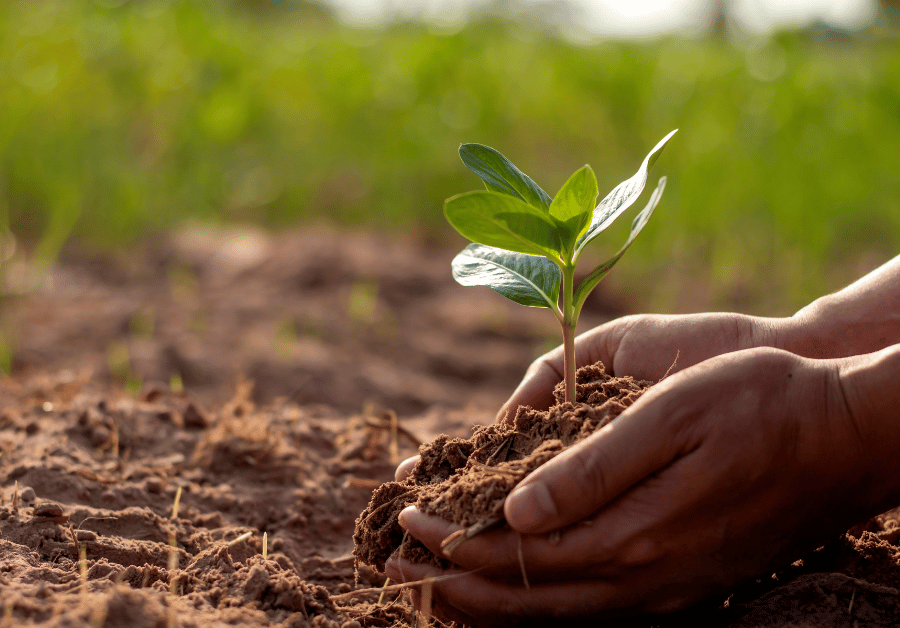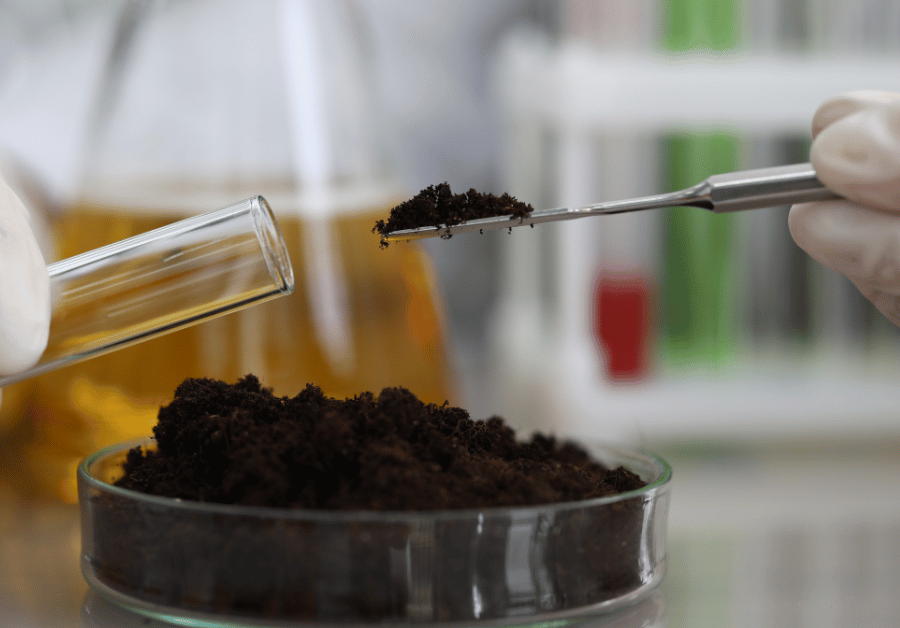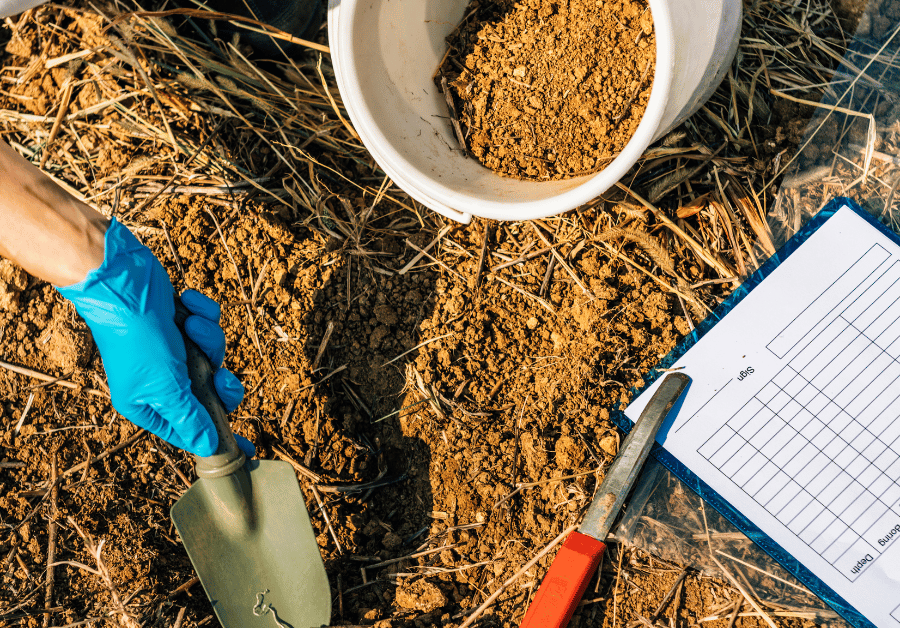Professional Soil Testing Services: Your Guide for Australian Properties
Are you planning a new building project, landscaping your garden, or concerned about the health of your soil in Australia? Understanding your soil is the first crucial step. Professional soil testing services provide the insights you need to make informed decisions. Whether you're in Sydney, Melbourne, Brisbane, Perth, Adelaide, or Hobart, knowing your soil type, nutrient levels, and potential contaminants is essential for success.
Why is Soil Testing Important for Australian Properties?

Soil testing isn't just a formality; it's an investment in the future of your property. Here’s why it matters:
- Construction: Understanding soil stability and composition is vital for building foundations. Unsuitable soil can lead to structural issues down the line.
- Landscaping: Knowing the nutrient content and pH level of your soil allows you to choose the right plants and fertilisers, ensuring a thriving garden.
- Agriculture: For farmers, soil testing is crucial for optimising crop yields and managing soil health.
- Environmental Concerns: Identifying contaminants like lead or asbestos is essential for protecting human health and the environment.
What Does Professional Soil Testing Involve?
Professional soil testing services typically involve the following steps:
- Sampling: A soil technician will collect samples from various locations and depths on your property.
- Laboratory Analysis: The samples are sent to a certified laboratory for analysis.
- Reporting: You'll receive a detailed report outlining the soil's composition, nutrient levels, pH, and any contaminants present.
- Recommendations: Based on the results, the report will provide recommendations for soil improvement, fertiliser application, or remediation strategies.
Types of Soil Tests Available

Different soil tests are available depending on your specific needs:
- Nutrient Analysis: Measures the levels of essential nutrients like nitrogen, phosphorus, and potassium.
- pH Testing: Determines the acidity or alkalinity of the soil, which affects nutrient availability.
- Contaminant Testing: Identifies the presence of heavy metals, pesticides, and other pollutants.
- Soil Texture Analysis: Determines the proportion of sand, silt, and clay in the soil.
- Salinity Testing: Measures the salt content of the soil, which is particularly important in coastal areas.
Choosing the Right Soil Testing Service in Australia
When selecting a professional soil testing service, consider the following factors:
- Accreditation: Ensure the laboratory is accredited by a recognised organisation like the National Association of Testing Authorities (NATA).
- Experience: Choose a company with a proven track record in your local area.
- Range of Services: Make sure they offer the specific tests you need.
- Reporting: Look for clear, easy-to-understand reports with actionable recommendations.
- Cost: Get quotes from several providers and compare their prices and services.
Cost of Soil Testing in Australia
The cost of soil testing in Australia can vary depending on the type of tests required and the location of your property. Generally, you can expect to pay anywhere from $100 to $500 for a standard soil test package. More comprehensive testing, such as contaminant analysis, may cost more.
To get accurate quotes from local providers, visit Get3Quote. Get3Quote connects you with trusted professionals in your area, making it easy to compare prices and services.
Soil Testing in Different Australian Cities
The specific soil conditions and testing requirements can vary depending on the region:
- Sydney: Often requires testing for building on clay soils and potential contaminants in older suburbs.
- Melbourne: Known for its reactive clay soils, which can cause foundation issues.
- Brisbane: Subtropical climate requires testing for nutrient deficiencies and drainage issues.
- Perth: Sandy soils require testing for water retention and nutrient availability.
- Adelaide: Alkaline soils can limit plant growth, requiring specific testing and remediation.
- Hobart: Unique soil types due to its island location, often requiring specialised testing.
DIY Soil Testing vs. Professional Services
While DIY soil testing kits are available, they often lack the accuracy and detail of professional soil testing services. For critical applications like construction or agriculture, it's always best to consult with a qualified professional.
Understanding Your Soil Test Results
Once you receive your soil test report, it's important to understand the key findings. Here's a brief overview:
- pH Level: Indicates the acidity or alkalinity of the soil (ideal range is typically 6.0 to 7.0).
- Nutrient Levels: Measures the concentration of essential nutrients like nitrogen (N), phosphorus (P), and potassium (K).
- Organic Matter: Indicates the amount of decomposed plant and animal material in the soil, which improves soil structure and fertility.
- Cation Exchange Capacity (CEC): Measures the soil's ability to hold onto nutrients.
- Contaminant Levels: Indicates the presence of any harmful substances like lead, arsenic, or asbestos.
If you're unsure about interpreting your soil test results, consult with a soil scientist or agricultural advisor.
Improving Your Soil Based on Test Results
Based on your soil test results, you can take steps to improve your soil health and productivity:
- Adjust pH: Add lime to raise the pH of acidic soils or sulfur to lower the pH of alkaline soils.
- Add Nutrients: Apply fertilisers to correct nutrient deficiencies. Choose fertilisers that are specifically formulated for your soil type and plant needs.
- Improve Soil Structure: Incorporate organic matter like compost or manure to improve soil drainage, aeration, and water retention.
- Remediate Contamination: If your soil is contaminated, consult with an environmental specialist to develop a remediation plan.
Experience with Soil Testing
Based on our experience connecting homeowners with soil testing professionals through Get3Quote for over 5 years, we've seen firsthand how crucial accurate soil analysis is. Many of our clients in Sydney and Melbourne have avoided costly foundation problems by conducting thorough soil tests before starting construction.
According to certified soil experts we've worked with, early detection of soil issues can save homeowners thousands of dollars in the long run.
Authoritativeness and Trustworthiness
The information provided in this article is based on industry best practices and expert advice. We have compiled data from authoritative sources to ensure accuracy and reliability. For further reading, consult resources from the USDA Natural Resources Conservation Service and the Soil Science Australia.
FAQ About Professional Soil Testing Services
How often should I get my soil tested?
It depends on your specific needs. For construction projects, soil testing is essential before starting any work. For gardens and farms, it's recommended to test your soil every 1-3 years.
Can I collect soil samples myself?
Yes, but it's important to follow proper sampling techniques to ensure accurate results. A professional soil technician can ensure representative samples are collected.
What do I do if my soil is contaminated?
Consult with an environmental specialist to develop a remediation plan. This may involve removing the contaminated soil or treating it with specific chemicals.
Find Local Soil Testing Services with Get3Quote
Ready to get your soil tested? Get3Quote makes it easy to find and compare professional soil testing services in your area. Simply fill out our online form, and we'll connect you with up to three trusted providers. Get started today and unlock the potential of your property!
Find reliable soil testing services in:
- Soil Testing Sydney
- Soil Testing Melbourne
- Soil Testing Brisbane
- Soil Testing Perth
- Soil Testing Adelaide
- Soil Testing Hobart
Don't leave your property's future to chance. Get your soil tested today!
